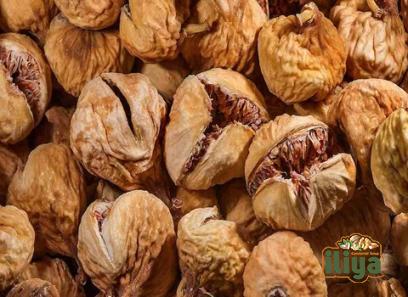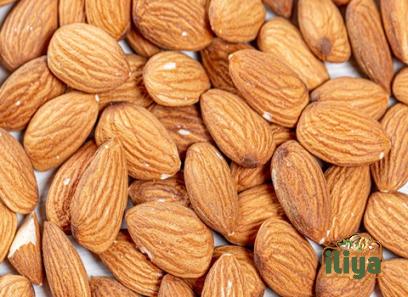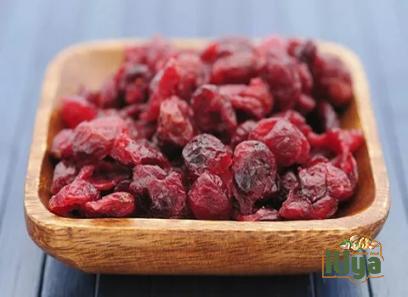Unshelled cashew nuts, also known as cashew in shells, are the raw, unprocessed form of the popular cashew nut. Cashews are native to Brazil and were later introduced to other tropical regions, including India, Vietnam, and Nigeria. The cashew tree produces cashew apples, which encase the cashew nut, also known as the seed. While the shelled cashew nuts are more commonly consumed and sold commercially, unshelled cashews have their own set of unique characteristics and applications.
Unshelled cashew nuts have a hard outer shell that protects the nutritious kernel inside. The shell is composed of two layers—the outer shell, also known as the exocarp, and the inner shell, known as the endocarp. Removing the shell requires mechanical processes or manual labor, depending on the scale of operations. The labor-intensive method involves hand-cracking the nuts, whereas larger-scale processing uses machines to shell the nuts mechanically.
One of the key advantages of unshelled cashew nuts is their extended shelf life. The shell acts as a natural protective barrier, shielding the cashew kernel from external factors such as humidity and oxygen. As a result, unshelled cashews can have a longer shelf life compared to shelled cashews. This makes them a preferred choice for bulk buyers who need to store the nuts for an extended period.
In addition to their longer shelf life, unshelled cashews are also known for their versatility. They can be used in various ways depending on the market demand. For instance, they can be roasted and consumed as a snack, further processed to extract cashew oil, or even transformed into cashew butter. The uses of unshelled cashews go beyond human consumption; they are also used as feed for livestock, particularly poultry.
The market for unshelled cashew nuts revolves around different sectors, including the food industry, agriculture, and animal feed industries. In the food industry, unshelled cashews are particularly popular in countries where the nuts are grown, as they are often incorporated into local cuisine. The agriculture sector utilizes unshelled cashews for research and development, as they play a vital role in breeding and genetic improvement programs. Livestock and poultry farmers also rely on unshelled cashews as a feed source due to their nutritional value.
When it comes to challenges in the unshelled cashew nut industry, labor costs and efficiency in shelling are primary concerns. Manual shelling is a labor-intensive process that requires skilled workers, making it time-consuming and costly. Additionally, the risk of workers injuring themselves while shelling the nuts is another concern. As a result, efforts are being made to develop more efficient and cost-effective mechanized methods for shelling unshelled cashews.
One significant trend in the unshelled cashew nut industry is the increasing demand for organic and sustainably sourced products. Consumers are becoming more conscious about the origin of their food and are seeking ethically produced cashews. This trend has created opportunities for farmers to adopt organic farming practices and seek certification to cater to the growing organic market.
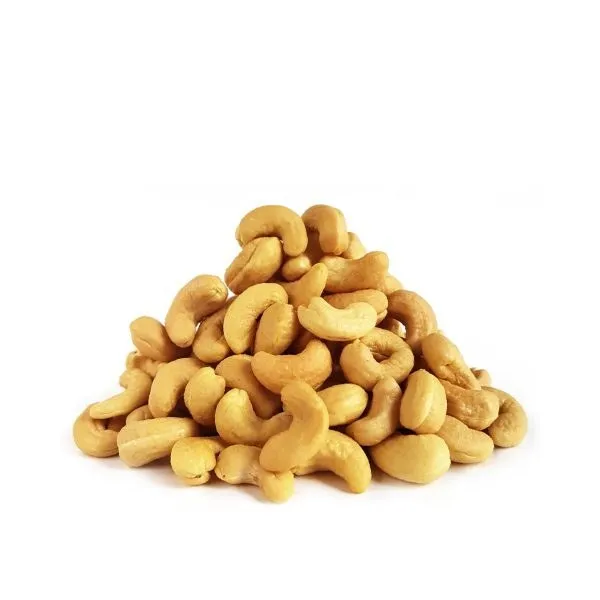
Another emerging trend is the utilization of cashew shells, which are often considered waste, as a sustainable energy source. Cashew shells have a high calorific value and can be used as biomass fuel in industries such as power generation and brick manufacturing. The utilization of cashew shells not only minimizes waste but also reduces reliance on non-renewable energy sources.
In conclusion, unshelled cashew nuts offer a range of benefits, such as their extended shelf life and versatility in various industries. They are used in food processing, as feed for livestock, and for research purposes in agriculture. However, challenges such as labor costs and efficiency in shelling persist in the industry. The growing demand for organic and sustainably sourced products and the utilization of cashew shells as a renewable energy source are some of the trends shaping the unshelled cashew nut industry.Unshelled Cashew Nuts: Expanding Opportunities and Challenges in the Business Landscape
1. Introduction:
The unshelled cashew nut industry presents a unique set of opportunities and challenges for businesses involved in its production, processing, and distribution. With their extended shelf life and versatility, unshelled cashews have gained traction in various sectors. However, labor costs and efficiency in shelling remain primary concerns. In this article, we will explore key aspects of the unshelled cashew nut business and delve into emerging trends that are shaping the industry.
2. Extended Shelf Life: A Competitive Advantage
The hard outer shell of unshelled cashew nuts acts as a protective barrier, extending the nuts’ shelf life compared to shelled cashews. This characteristic makes unshelled cashews a preferred choice for bulk buyers and exporters who require long-term storage solutions. The ability to maintain quality over time increases profitability and reduces waste in the supply chain.
3. Versatility: Unlocking Multiple Markets
Unshelled cashews offer versatility in their applications, opening doors to various market opportunities. The nuts can be roasted and consumed as a snack, used as ingredients in culinary preparations, or transformed into cashew oil and cashew butter. This flexibility allows businesses to cater to diverse consumer preferences and tap into different segments of the food industry.

4. Beyond Human Consumption: Livestock Feed
Unshelled cashews have value beyond human consumption. They are an excellent source of nutrition for livestock, particularly poultry. Poultry farmers utilize unshelled cashews as feed due to their high protein content and essential vitamins and minerals. This presents an additional market for businesses in the unshelled cashew nut industry to explore and tap into.
5. Market Dynamics: The Food Industry
The food industry plays a crucial role in driving the demand for unshelled cashew nuts. In countries where cashews are grown, unshelled cashews are integral to local cuisine, adding flavor and texture to various dishes. Restaurants, bakeries, and food manufacturers rely on unshelled cashews to meet consumer demand for authentic and traditional flavors.
6. Agriculture Sector: Research and Development
The agriculture sector heavily relies on unshelled cashew nuts for research and development purposes. Breeders and genetic improvement programs utilize the nuts to develop new varieties of cashew trees that exhibit desirable characteristics such as disease resistance, higher yield, and improved quality. This collaboration between the cashew industry and the agricultural research community drives innovation and fosters sustainable growth.
7. Labor Costs and Efficiency Concerns
One of the key challenges in the unshelled cashew nut business is the high cost of labor involved in shelling the nuts. Manual shelling requires skilled workers and is a time-consuming process, leading to increased production costs. Additionally, the risk of worker injuries during the shelling process is a concern for businesses. Finding more efficient and cost-effective mechanized methods for shelling unshelled cashews is crucial for improving productivity and profitability.
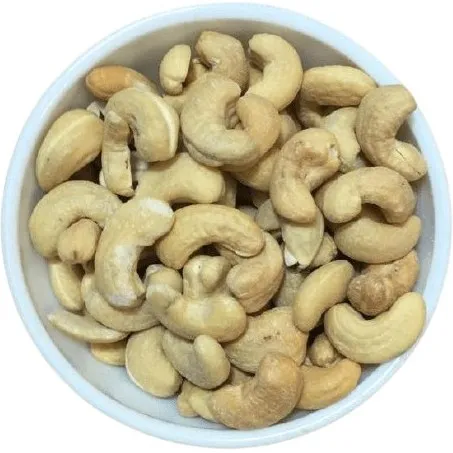
8. Organic and Sustainable Market Trends
Consumers’ growing awareness of the origin and production practices behind their food has stimulated the demand for organic and sustainably sourced products, including cashews. This trend presents an opportunity for farmers to adopt organic farming practices and seek certification, catering to the increasing market demand for ethically produced cashews. Businesses can leverage this consumer preference and differentiate themselves in the market by embracing sustainability and eco-friendly practices.
9. Utilization of Cashew Shells: A Circular Economy Approach
Cashew shells, often considered waste in the cashew processing industry, have found alternative uses as a sustainable energy source. These shells possess high calorific value and can be utilized as biomass fuel in industries such as power generation and brick manufacturing. The utilization of cashew shells not only minimizes waste but also reduces reliance on non-renewable energy sources, contributing to a circular economy model.
10. Emerging Technologies: Automating Shelling Processes
With the aim of reducing labor costs and improving efficiency, businesses in the unshelled cashew nut industry are exploring automated shelling processes. Advanced machinery is being developed to shell unshelled cashews efficiently, minimizing labor requirements and improving productivity. These technologies present opportunities for businesses to streamline their operations and increase competitiveness.
11. Quality Control and Traceability
Maintaining consistent quality and ensuring traceability are critical aspects of the unshelled cashew nut business. Implementing robust quality control measures throughout the production and processing stages is essential to meet market demands and comply with food safety regulations. Additionally, establishing traceability systems allows businesses to track cashew nuts from farm to fork, providing transparency to consumers and bolstering trust in the product.

12. Expanding Global Demand: Seizing Export Opportunities
The global demand for cashews, both shelled and unshelled, continues to grow. Businesses in the unshelled cashew nut industry can leverage this demand by exploring export opportunities. Developing strategic partnerships with international buyers, complying with export regulations, and adhering to quality standards are key considerations for businesses seeking to expand their presence in the global market.
In conclusion, the unshelled cashew nut industry offers a range of opportunities for businesses across various sectors. Extended shelf life, versatility, and expanding market dynamics contribute to the appeal of unshelled cashews. However, challenges such as labor costs and efficiency in shelling require innovative approaches and technological advancements. Embracing organic and sustainable practices, utilizing cashew shells as a renewable energy source, and focusing on quality control and traceability can provide businesses with a competitive edge in this growing industry.







